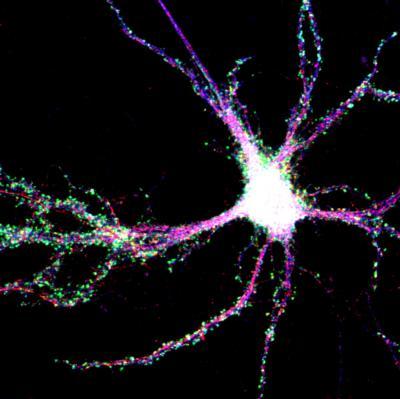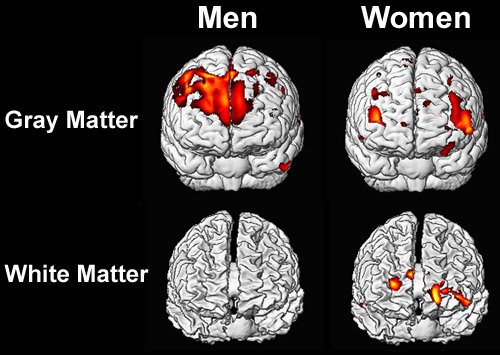Nutritionists have long endorsed fish as part of a heart-healthy diet, and now some studies suggest that omega-3 fatty acids found in the oil of certain fish may also benefit the brain by lowering the risk of Alzheimer’s disease. In order to test whether an omega-3 fatty acid can impact the progression of Alzheimer’s disease, researchers supported by the National Institute on Aging (NIA), part of the National Institutes of Health, will evaluate one in a clinical trial, the gold standard for medical research.
Brain
The majority of advertising exposure occurs when the audience’s attention is focused elsewhere, such as while flipping through a magazine or browsing a web site. However, a new study reveals that even this incidental exposure to advertising may have a positive effect on consumer attitudes. Forthcoming in the June issue of the Journal of Consumer Research, the study revises existing theories of exposure advertising, specifically repeated views of web-based banner ads.
Researchers have created the first computational model to track engine performance from one combustion cycle to the next for a new type of engine that could dramatically reduce oil consumption and the emission of global-warming pollutants.
Researchers have known for decades that certain neurodegenerative diseases, such as mad cow disease or its human equivalent, Cruetzfeldt-Jakob disease, result from a kind of infectious protein called a prion. Remarkably, in recent years researchers also have discovered non-pathogenic prions that play beneficial roles in biology, and prions even may act as essential elements in learning and memory.
For years, scientists have studied the molecular basis of memory storage, trying to find the molecules that store memory, just as DNA stores genetic memory.
Brandeis University researchers report for the first time that memory storage can be induced and then biochemically erased in slices of rat hippocampus by manipulating a so-called "memory molecule," a protein kinase known as CaMKII.
A new study showed that a certain form of neuropsin, a protein that plays a role in learning and memory, is expressed only in the central nervous systems of humans and that it originated less than five million years ago.
The human and chimpanzee genomes vary by just 1.2 percent, yet there is a considerable difference in the mental and linguistic capabilities between the two species.
The likelihood of developing bipolar disorder depends in part on the combined, small effects of variations in many different genes in the brain, none of which is powerful enough to cause the disease by itself, a new study shows.
Although women consume less alcohol than men, they are more susceptible to some of the negative medical consequences of alcohol use, such as cirrhosis of the liver, cardiac disease, and cognitive impairments. Animal studies have also shown that males and females differ on behavioral as well as electrophysiological measures of alcohol's effects. A study found that female rats are not only less sensitive to the sedating effects of alcohol, but that cycling hormonal levels can mediate alcohol's effects.
Despite research efforts to find modern factors that would explain the different life expectancies of men and women, the gap is actually ancient and universal, according to University of Michigan researchers.
"Women live longer in almost every country, and the sex difference in lifespan has been recognized since at least the mid-18th century," said Daniel J. Kruger, a research scientist in the U-M School of Public Health and the Institute for Social Research. "It isn't a recent trend; it originates from our deep evolutionary history."
Everyday experience and psychology research both indicate that paying close attention to one thing can keep you from noticing something else.
However, a new study from the University of Wisconsin-Madison suggests that attention does not have a fixed capacity - and that it can be improved by directed mental training, such as meditation.
Increasing the amount of SUMO, a small protein in the brain, could be a way of treating diseases such as epilepsy and schizophrenia, reveal scientists at the University of Bristol, UK. Their findings are published online today in Nature. Distribution of kainate receptors (blue) and SUMOylation enzymes (red) in the synaptic areas (green) of a hippocampal neurone. Credit: Stephane Martin
Distribution of kainate receptors (blue) and SUMOylation enzymes (red) in the synaptic areas (green) of a hippocampal neurone. Credit: Stephane Martin
Don't feel bad if you want to be part of the "in" crowd. It may be hardwired in our brain cells.
Diabetes researchers, investigating how the body supplies itself with insulin, discovered to their surprise that adult stem cells, which they expected to play a crucial role in the process, were nowhere to be found. Many researchers had proposed that adult stem cells develop into insulin-producing cells, called beta cells, in the pancreas.
New evidence on sex differences in people’s brains and behaviors emerges with the publication of results from the British Broadcasting Corporation’s (BBC) Sex ID Internet Survey. Survey questions and tests focused on participants’ sex-linked cognitive abilities, personality traits, interests, sexual attitudes and behavior, as well as physical traits. The Archives of Sexual Behavior¹ has devoted a special section in its April 2007 issue to research papers based on the BBC data.
Does the time of year in which a child is conceived influence future academic achievement? Yes, according to research by neonatologist Paul Winchester, M.D., Indiana University School of Medicine professor of clinical pediatrics.